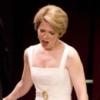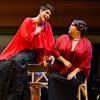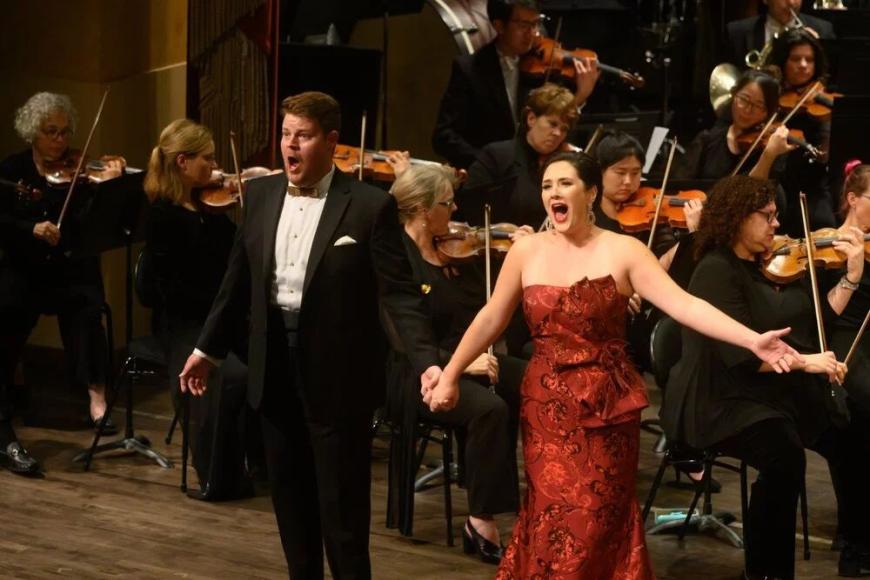
It’s a small, small Merola world ...
When word came about the 2022 Schwabacher Recitals, I called two of the participants and found both of them in rehearsal, singing the title role of current Carmen productions, one in Hawaii, the other in San José.
For Ashley Dixon, Oahu is a “gathering place,” not only in name, but in Merola terms: Andrew Morgan, Hawaii Opera Theatre’s general director, was a longtime official with SF Opera. With Dixon in the title role of the Peter Brook-meets-Mérimée-meets-Bizet Tragedy of Carmen, former Merolinis Kyle van Schoonhoven, Christian Pursell, and Maria Valdes are Don José, Escamillo, and Micaëla, respectively.
For Nikola Printz, it’s the title role of the (original) Bizet Carmen — conducted by Joseph Marcheso, in Lillian Groag’s production, in collaboration with the Flamenco Society of San José. Merola colleagues from the past include Noah Stewart (Don José), Eugene Brancoveanu (Escamillo), and Teresa Castillo (Frasquita).
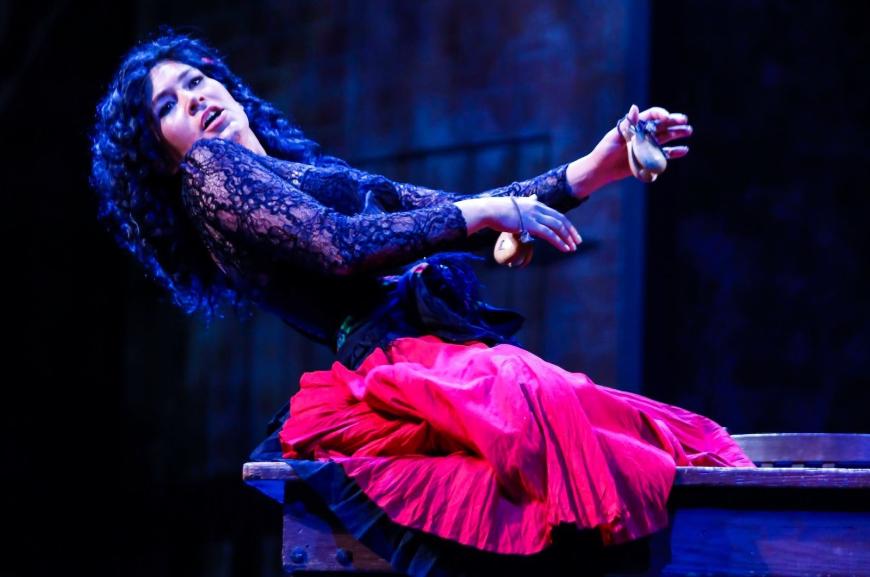
Of the recitals: The rarest of creatures, an operatic tenor of means, James Schwabacher (1920 – 2006), “scion of a wealthy San Francisco family,” was born with a great heart and a lifelong passion for opera and lieder. He combined those assets in a series of major, lasting accomplishments, championing and cofounding San Francisco’s Merola Opera Program in 1957, San Francisco Performances in 1980, and establishing the Schwabacher Debut Recital Series in 1983 and endowing it in perpetuity.
Loyal fans (and supporters) of the recitals have followed them through the years from upstairs in Muldoon Elder’s Vorpal Gallery (two wooden columns flanking/obscuring the singers); to Old First Church for Anna Netrebko’s debut; some at Herbst, if memory serves; then for several years in Temple Emanu-El; and now landing in the War Memorial Veterans Building’s somewhat claustrophobic Atrium Theater.
Among those who made their debuts in the recital series: sopranos Deborah Voigt and Tracy Dahl, mezzo-soprano Susan Graham, tenor Michael Schade, baritone Thomas Hampson, and bass John Relyea.
After the pandemic hiatus, this is what the 2022 recital series, the 38th edition, will offer: four recitals (March 15, April 6, April 27, and July 28), the first three in the Taube Atrium Theater and the last in the SF Conservatory of Music’s concert hall.
March 15: Two 2021 participants of the Merola Opera Program, mezzo-soprano Nikola Printz and pianist Erica Xiaoyan Guo, will share the stage with guitarist Tatiana Senderowicz.
The program explores femininity in the works of Barbara Strozzi, Gioachino Rossini, Alma Mahler, and David Lang; part two features the works of Ned Rorem, Franz Schubert, and new arrangements of Ranchera pieces; the recital’s final act, “Neutrois,” consists of music “that feels like it transcends gender,” including Benjamin Britten’s Cabaret Songs, Wolfgang Erich Korngold’s Drei Lieder, and Prince’s “Nothing compares to you.”
April 6: Mezzo-soprano Ashley Dixon, a 2015-2017 Merolina and 2018–2019 Adler Fellow, is accompanied by pianist Kseniia Polstiankina Barrad, a second-year Adler Fellow. The program emphasizes French and Spanish composers, including Claude Debussy, Reynaldo Hahn, Manuel de Falla, and Carlos Guastavino.
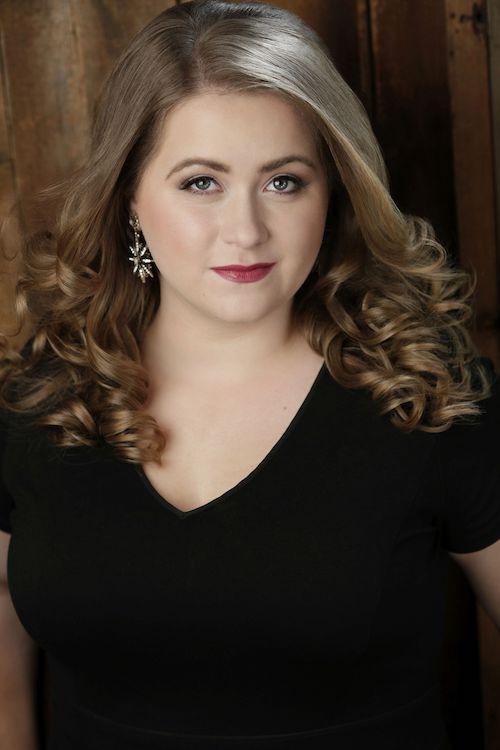
April 27: Four 2019 Merola participants, soprano Esther Tonea (also a current Adler Fellow), baritone Timothy Murray, bass Stefan Egerstrom, and pianist Andrew King perform works by Jean Sibelius, Sergei Rachmaninoff, Korngold, and Tom Cipullo.
July 28: Baritone Sidney Outlaw (Merola, 2010) and pianist and Merola/Adler faculty member Warren Jones perform works from Lament, their recent collaboration, an album that pays homage to 20th-century American song. The program includes works by Ricky Ian Gordon, Robert Owens, Dorothy Rudd Moore, Harry T. Burleigh, and the words of Langston Hughes.
Printz, who was part of the 2020 Merola season which, at the beginning of the pandemic, still hoped for a quick resumption of normalcy, created a busy individual world as everything shut down:
“I started learning ASL — I have a goal that all my recitals will be interpreted; I think accessibility in the arts is of the utmost importance. I trained on my trapeze a lot, started rock climbing, wrote a lot of my own music, did a fabulous online seminar with the BANFF program about diversity and inclusion in the opera world, and got two precious rescue cats with my partner ... all the while teaching piano, ukulele, and guitar on Zoom. You know, just trying to pay my bills and stay afloat.”
And now, Printz is a resident with Opera San José, sang Dido in Purcell’s opera (with Efraín Solís as Aeneas), takes on the title role of Carmen this month, is awaiting what the summer festivals will bring, and is working on a film of Francis Poulenc’s La voix humaine.
Of the Schwabacher series, Printz says:
To me, recitals all seem to follow a similar formula. I want to treat it a little more like an intimate conversation with the audience, via song choice and presentation. For me, the audience is a character in the stories of recitals: they follow along, and they listen and react to what you have to say.
I wanted to break it up in three parts and to have visual representations and an actual conversation with my audience about how I experience gender variations, so that they can see me, and understand. My goal was to take a wide expanse of genres and styles of music and make it cohesively make narrative sense. The end of each set has one song that ties to the next.
The first set ends with a piece by David Lang, ‘I was a woman,’ where the heroine (disguised as a man) bemoans the loss of her femininity. This brings us to our next section exploring masculinity starting with Walt Whitman poems set by queer composer Ned Rorem.
Tying together the second set — all about masculinity and virility — we end with a set I’ve dedicated to the great Ranchera icon Chavela Vargas, singing ‘Aquel Amor’ (which she sang at her former lover/lifelong friend Frida Kahlo’s funeral) and one of my favorite pieces, ‘No Soy de Aquí,’ which for me illustrates the very crux of the whole recital — ‘I’m not from here or there, I don’t have a past or future, being happy is the color of my identity.’ The idea of freely being yourself, allowing yourself to change and grow and be gender fluid.”
Appearing in the second recital, Ashley Dixon is also in the midst of an increasingly busy period following the worst of the pandemic:
“Most recently, I sang with West Edge Opera in Elizabeth Cree and then sang the William Bolcom opera Lucrezia with Opéra Louisiane. After the current Tragedy of Carmen with all former Adlers in Hawaii, I’ll sing Adalgisa in Norma with Festival Opera and then Annio in La clemenza di Tito with the Chicago Symphony Orchestra at the Ravinia Festival.”
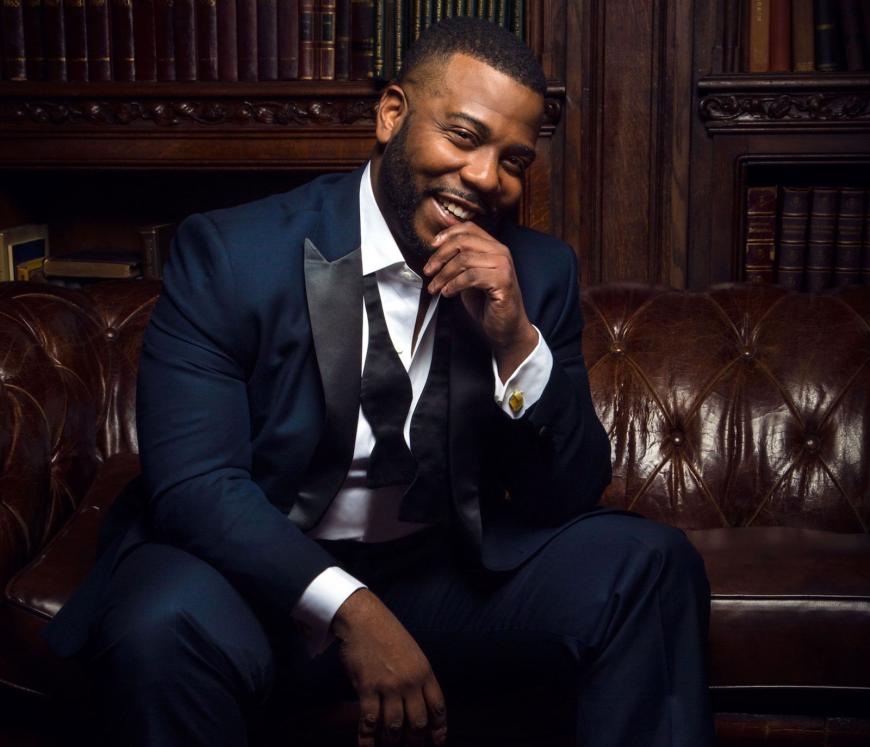
In the recital program, Dixon names Hector Berlioz as the composer to whom she has the closest rapport. “Once I discovered his music, I felt like it was written for my voice. I stumbled upon Anne Sofie von Otter singing La mort d’Ophelie, and I knew I had to program it. It captures the story of Ophelia with the music, feeling like a dream but also all-consuming. You hear her madness in such an aqueous way.
“My other favorite parts of the recital are Joaquin Turina’s ‘Poema en forma de canciones.’ The music sounds as if Debussy went to Spain. It is enrapturing. I have special feelings about this piece because the first time I heard this was on my now husband Carlos Santelli’s recital when we were in school. In our relationship he has introduced me to so much Spanish music, and it has become so special to me, and I try to program it any chance I get.”
As at all events, SF Opera requires documentation of full vaccination, including a booster shot received at least 7 days prior to the event, along with photo ID, and masks worn indoors.




